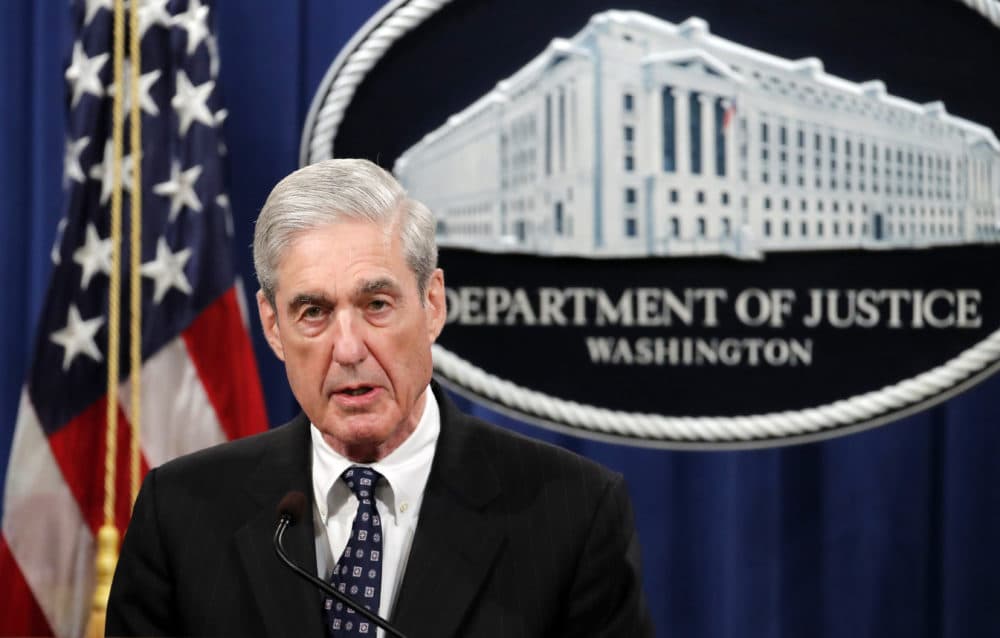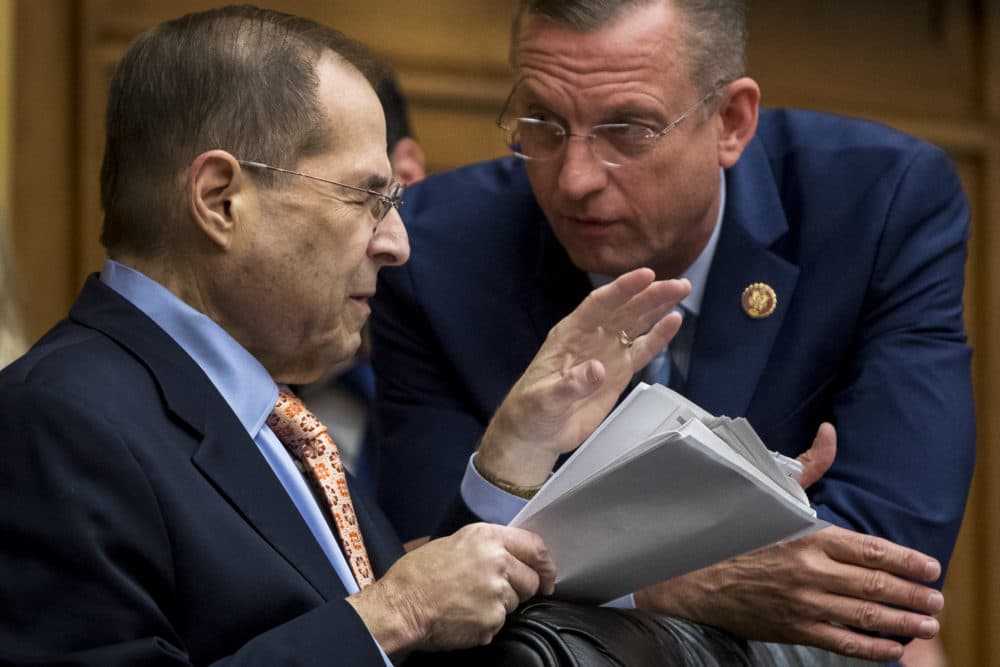Advertisement
Commentary
Trump Won't Stop Congress' Investigations

While the talking heads on television may say otherwise, Special Counsel Robert Mueller’s brief remarks yesterday could not have been clearer: the ball is in Congress’ court to investigate President Trump.
While charging the president with a crime was off the table, because of the position of the Office of Legal Counsel (OLC) at the Department of Justice, the special counsel investigation was critical “to preserve evidence while memories are fresh and documents available,” Mueller said. Now, having completed that investigation and preserved that evidence, the next step belongs to Congress: “... the Constitution requires a process other than the criminal justice system to formally accuse a sitting president of wrongdoing."
That formal process is just what Congress has begun, whether it is labeled an impeachment inquiry or just an ordinary run-of-the-mill investigation of presidential misconduct.
In fact, I predict that the president’s efforts to stop those investigations will fail. Trump has an abysmal record in the courts. This isn’t because he has landed before judges appointed by political opponents, which is what he says. It is because some of the positions he has taken in court are so far afoul of constitutional law, norms and traditions, that it doesn’t matter who the judge is. Any judge who has read the Constitution, attended law school, let alone swore the judicial oath would agree. He is losing, in short, because he is flat out wrong.
Case in point: The White House’s recent challenges to subpoenas issued by several House committees. These subpoenas involve private companies, the accounting firm Mazars USA, Deutsche Bank and Capital One, not present or former White House personnel. That means they don’t involve the debates swirling around executive privilege or the various “unitary executive” theories that limit Congress’ power to interfere with executive branch decision making. Nor are they remotely about areas in which executive and congressional authority is contested, such as the power to make war.
No, this is about Congress’ core constitutional authority under Article I of the Constitution, the authority to legislate. To legislate, Congress needs the ability to inquire into problems, analyze possible solutions. Without the ability to investigate, the power to legislate would be ineffective.
That’s why the recent decisions of two federal judges came so quickly, with a tone of absolute certainty. That’s why neither judge would tolerate a delay in implementing their orders. In fact, when Judge Amit Mehta (who ruled in favor of the House Oversight Committee) cites President James Buchanan in 1860, or the Teapot Dome Scandal in the 1920s (when the Supreme Court upheld a subpoena for the attorney general’s brother), or the Senate Watergate Committee in 1973, or the Whitewater Committee in 1995, or says “in each of the four preceding Congresses — all controlled by the Republican Party, including during the final six years of the Obama Administration — the House Oversight Committee enjoyed the same power at any time [to] conduct investigations of any matter,” the message is unequivocal: Congress has the authority to investigate potential corruption as part of its oversight responsibility and make inquiries “incident to their legislative duties.” Period.

Judge Mehta refused to block a subpoena calling on Mazars USA, the president’s accounting firm, to hand over Trump’s financial records (which could well include tax returns). The president claimed that Congress’ motive was illegitimate — namely, to provide fodder for a criminal investigation. Not so, said Judge Mehta: Congress has a right to investigate for the purpose of strengthening ethics laws (given Michael Cohen’s accusations that the president routinely altered the value of his assets on financial statements), or for the purpose of bolstering campaign finance laws (given Cohen’s claim Trump paid off women with whom he had affairs to silence them before the election), or to monitor compliance with foreign emoluments clause.
The fact that Congress’ investigation overlaps with a criminal investigation or concerns conduct before Trump became president is also irrelevant, argued Judge Mehta. Nixon was investigated for corruption while in office, acts that were both impeachable and criminal, and Clinton for illegal conduct before his term began.
Congress has the authority to investigate potential corruption as part of its oversight responsibility ... Period.
Likewise, Judge Edgardo Ramos rejected Trump’s challenge to House subpoenas of Deutsche Bank and Capital One. The House Intelligence and Finance Committees are seeking information with respect to potential money laundering, foreign influence in the United States political process reflected in foreign money flowing into Trump’s coffer and the counterintelligence risks posed by foreign financial leverage over the president — all in service of their obligation to decide if U.S. laws on this subject are adequate.
Trump harps on the fact that President Obama appointed Mehta and Ramos. He wants to run out the clock before the 2020 election, or worse, he is counting on “his” Supreme Court to help him out. Not so fast. It doesn’t take a strict constructionist or a fancy exegesis of “original intent” to see that the president is wrong. The historical roots of Congress’ power to investigate run deep — in the powers of the British Parliament, in colonial legislatures before the American Revolution and state legislatures afterwards.
So, it doesn’t matter who appointed these judges, let alone the justices who will hear these appeals. What matters is that this president has no problem making specious constitutional arguments in service of one goal — self-preservation.

